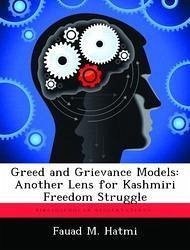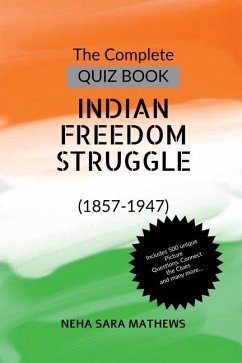Nicht lieferbar

Greed and Grievance Models: Another Lens for Kashmiri Freedom Struggle
Versandkostenfrei!
Nicht lieferbar
The indigenous freedom struggle, which started in 1989 by Kashmiri Muslims has consumed millions of lives and is persisting without any solution. What caused the struggle to start after forty-two years of Kashmir's accession to India and what was the motivation behind the cause? This paper will make an effort to analyze the issue in light of Greed and Grievance models and make a comparison with the events that led to the freedom struggle in Kashmir. Applying the models will help to establish whether it was the benefits of resources or violation of basic human needs or grievances, which caused ...
The indigenous freedom struggle, which started in 1989 by Kashmiri Muslims has consumed millions of lives and is persisting without any solution. What caused the struggle to start after forty-two years of Kashmir's accession to India and what was the motivation behind the cause? This paper will make an effort to analyze the issue in light of Greed and Grievance models and make a comparison with the events that led to the freedom struggle in Kashmir. Applying the models will help to establish whether it was the benefits of resources or violation of basic human needs or grievances, which caused and sustained the freedom struggle. Kashmiri Muslims revolted because their decades of accumulated grievances, could no longer keep them quiescent. The hold of one group on state power for generations, inefficiency, political alienation, wide spread corruption, nepotism and electoral malpractices, all gave impetus to rebellion. The grievance model most accurately describes the pattern of events and the motivations for revolt and conflict persistence in Kashmir. Therefore, implementing strategies that derived out of this model can be beneficial in bringing lasting peace and stabilization in the region.









